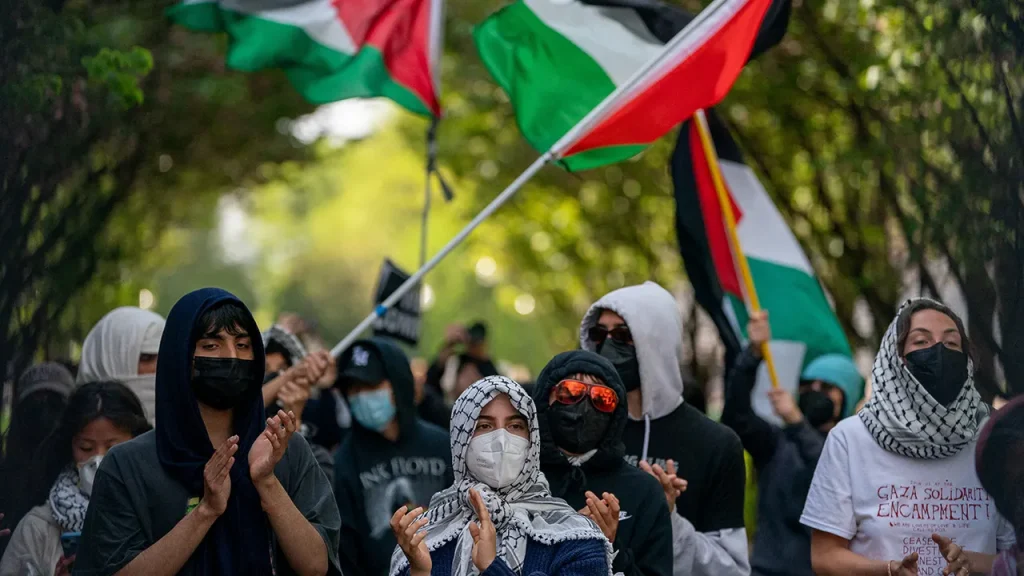Joseph Massad, a professor at Columbia University, is scheduled to teach a course on Zionism despite having publicly celebrated the Hamas attacks on Israel in October 2023. This has sparked significant controversy and outrage, particularly given Massad’s characterization of the attacks as “awesome” and “astounding.” The course description on Columbia’s website indicates it will cover the history of the Jewish Enlightenment and the development of Zionism up to the current peace process. However, critics like Congressman Ritchie Torres question the appropriateness of Massad leading such a course given his apparent support for Hamas and its violent actions. Torres argues that taxpayer-funded institutions should not support ideological indoctrination that glorifies the atrocities committed against Israelis.
Massad’s comments, published on The Electronic Intifada, praised the Palestinian resistance fighters and the widespread jubilation among Arabs witnessing the attacks. He described scenes of fighters breaching the Israeli border fence as “astounding” and celebrated the widespread support for the Palestinians in their battle against “cruel colonizers.” These remarks have drawn intense criticism, with some likening his perspective to that of a white supremacist teaching a course on anti-racism. The controversy highlights the ongoing debate surrounding academic freedom and the responsibility of universities to ensure balanced and objective instruction, especially on sensitive topics like the Israeli-Palestinian conflict.
The decision by Columbia University to allow Massad to teach the course has prompted at least one resignation. Lawrence Rosenblatt, an adjunct professor, reportedly resigned in protest, citing Massad’s advocacy for the eradication of a group of people as incompatible with the university’s responsibility to provide objective and fair education. Rosenblatt suggested that a course on the Israeli-Palestinian conflict should, at best, be co-taught from diverse Israeli and Palestinian perspectives, but certainly not by someone who openly celebrates violence and the destruction of one side of the conflict. This resignation underscores the deep divisions within the university community regarding Massad’s views and the university’s response.
The core of the controversy lies in the perceived conflict between academic freedom and the responsibility of educational institutions to promote unbiased and factual instruction. While proponents of academic freedom argue that professors should be free to express their views, even controversial ones, critics contend that this freedom should not extend to glorifying violence and promoting hatred. The Massad case raises questions about the limits of academic freedom and whether universities have a duty to vet professors teaching sensitive topics, especially when their views appear to endorse violent extremism.
The controversy surrounding Massad’s course also brings into focus the broader debate about the Israeli-Palestinian conflict on college campuses. Universities often become battlegrounds for competing narratives, with pro-Israel and pro-Palestinian groups vying for influence. The Massad case exemplifies the challenges universities face in navigating these complex and emotionally charged issues while upholding their commitment to academic freedom and balanced discourse. The incident is likely to further polarize opinions and intensify the debate surrounding the role of universities in addressing the Israeli-Palestinian conflict.
The Massad case at Columbia University serves as a microcosm of the larger societal struggles surrounding free speech, academic freedom, and the Israeli-Palestinian conflict. The incident highlights the difficult balancing act universities must perform in upholding academic freedom while ensuring responsible and unbiased instruction, particularly on sensitive political issues. The controversy also underscores the deep divisions and passionate opinions that characterize the ongoing debate about the Israeli-Palestinian conflict, both within academia and the broader public sphere. The fallout from this incident is likely to continue, with implications for how universities address similar situations in the future.


